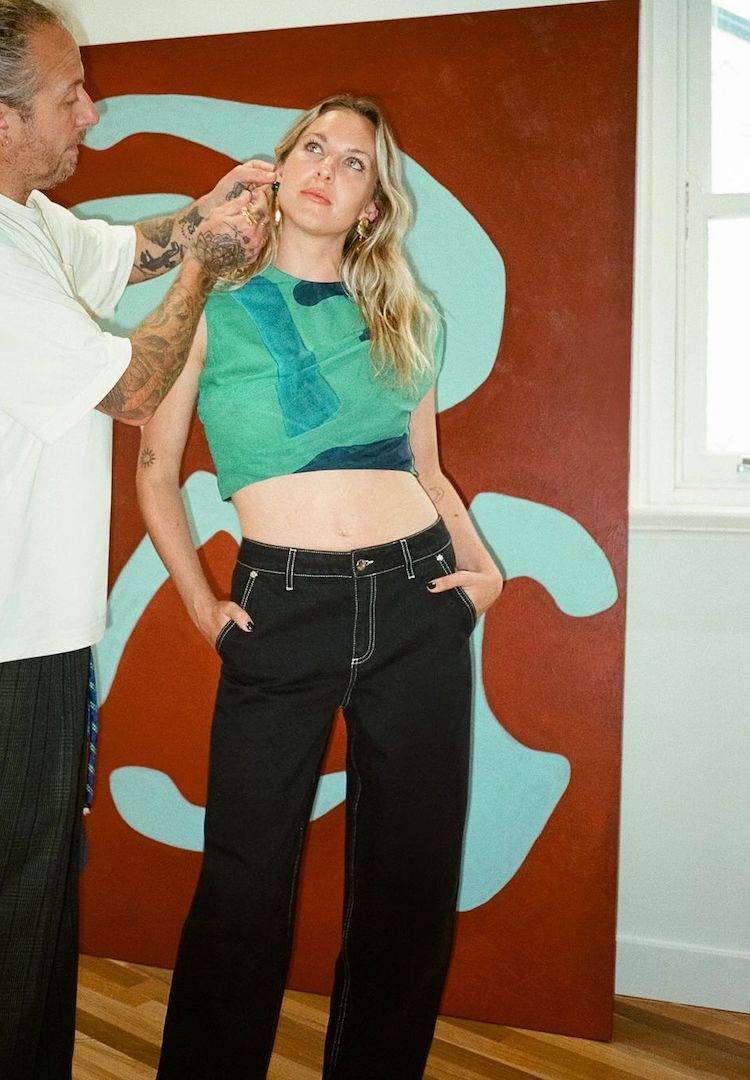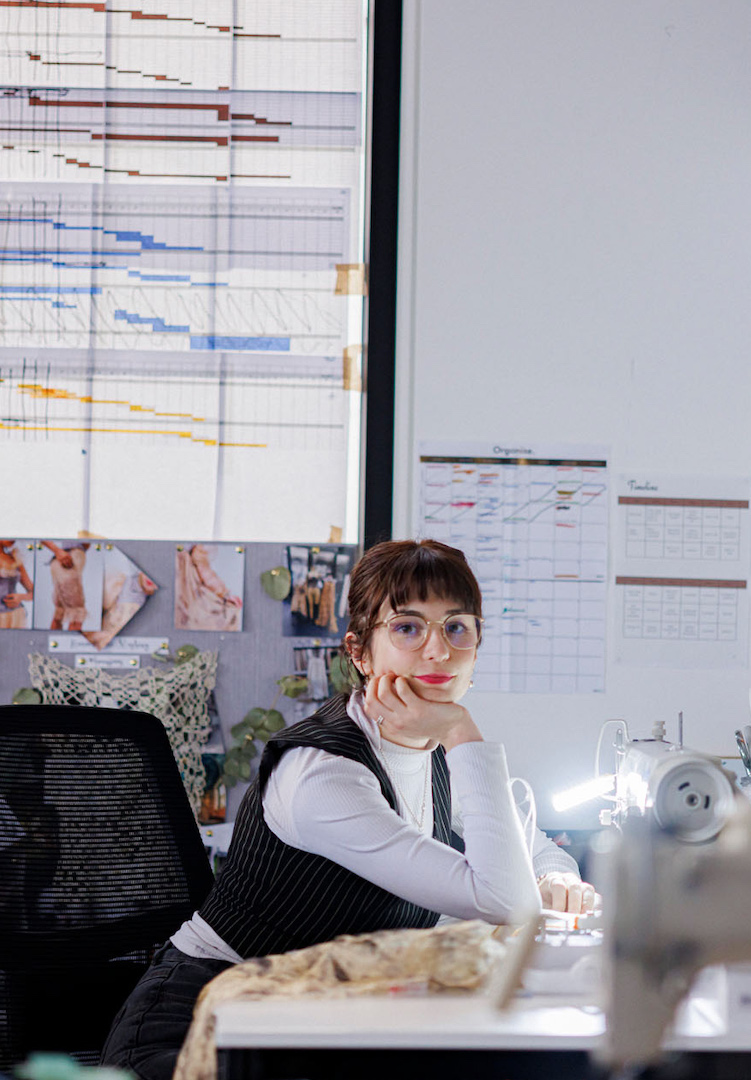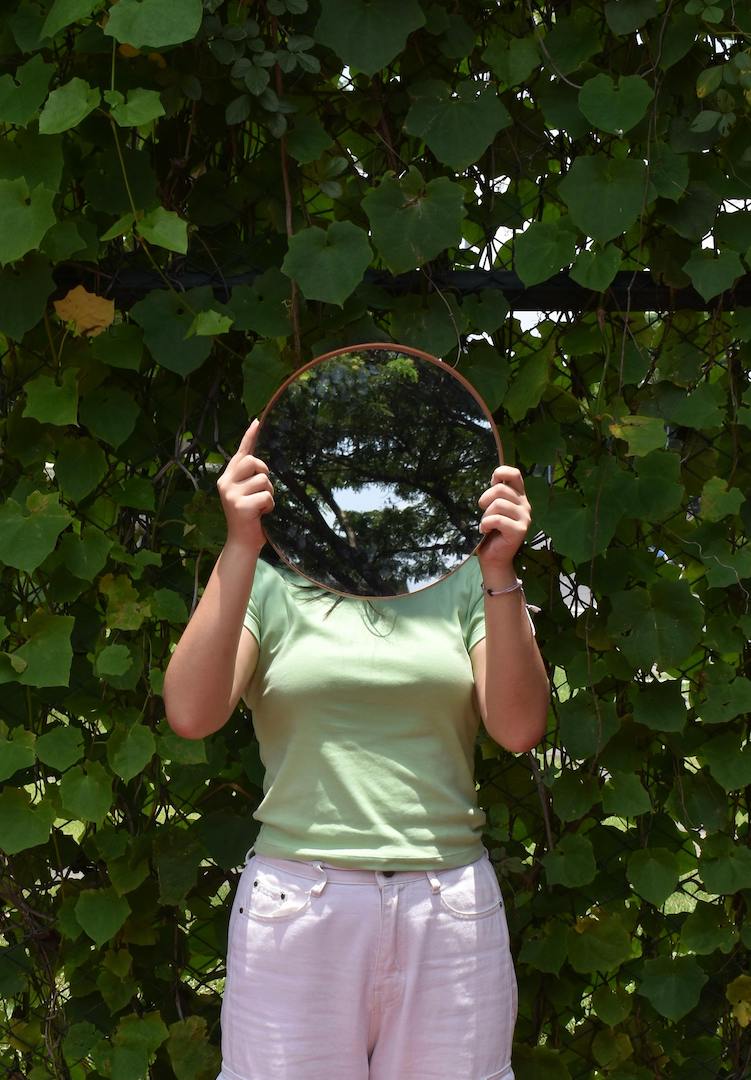How I broke through the stigma of therapy as an Asian woman
PHOTOGRAPHY BY TASHA TYLEE
WORDS BY LUCY XU
Let’s be vulnerable and talk openly about mental health.
“Drink lots of water, eat lots of veggies and keep yourself busy.” That’s my mum’s mantra and her solution to all of life’s curveballs, including any kind of turmoil in regard to my emotional wellbeing.
Mental health has always been a taboo subject in my household. It wasn’t so much that it was actively shunned, it just simply wasn’t talked about. It’s difficult to pinpoint why we always veered away from this topic, but as I come from a Chinese-Australian family, my theory is that it’s a mixture of the generational gap and cultural factors.
For more content like this, browse through our Life section.
My grandparents, even my parents today, have little knowledge about depression, trauma or anxiety. When they were younger, they believed these things just weren’t an option, and they feared being categorised as being ‘mad’ or ‘mental’.
Luckily, in the Western world, cultural perceptions of mental health have drastically changed over the years. But studies have shown that diasporic Asian communities in the West are less likely to seek psychological care because of social stigma and saving face, and Asian people are more inclined to express psychological distress as physical complaints.
When I was growing up, I never questioned my emotional wellbeing, simply because no one discussed it. When I look back now, I can see I was dealing with my emotions on my own in really unhealthy ways, specifically in regards to my body image.
I remember attempting to confide in my mum about how I was feeling, and she would often give me the aforementioned advice. It wasn’t that she was dismissive about it, she genuinely cared, but just didn’t know how to navigate the conversation.
To be clear, I’m in no way blaming my family. I am sure they each have had their own struggles that they have repressed. Perhaps they just didn’t know how to talk about their own mental health; perhaps they were scared too.
My relationship with food was something I always struggled with throughout my teenage years, but I never associated it with mental health. But one night when I was scrolling on the internet, I encountered a blog where a woman documented her eating disorder recovery journey. It was then that I realised that I had an illness. It really was a lightbulb moment – by that point, my eating disorder was already physically and mentally affecting my everyday life.
Following a night of research, I made an appointment with a GP the next day. She prescribed me anti-depressants and immediately referred me for 10 sessions of psychological counselling that were covered by Medicare. I was hesitant but also desperate. It was free, so I decided to take the leap.
I never told anyone about this, not my family or even my friends, so it’s a big deal that I’m spilling it here for the first time. I eventually recovered, but the therapy continued on and off, for various other reasons. Now, at the age of 23, I’ve been pouring my heart out to strangers for the last five years. I think I find it easier to open up to someone who has absolutely no personal attachments to me.
But one thing that has been constant throughout this journey are the feelings of shame and embarrassment I’ve felt for seeking help from professionals.
The lack of dialogue around these issues meant that my knowledge of therapy and counselling predominantly came from dramatised TV shows. And yes, the long nights spent dwelling on the ups and downs of Grey’s Anatomy characters’ mental health were very exhausting.
I remember the walk to my first therapy session vividly. Going into the clinic meant that I had to pass through a massive over-crowded shopping district, and a million thoughts were running through my head. ‘Do I look crazy?’, ‘Do I look like I have a mental condition?’, ‘Did they also just have therapy?’, and ‘Maybe they’re crazy too’.
As if others would know where I was headed, I wore a bucket hat to prevent myself from being recognised. The TV portrayal of therapy did get the setting somewhat right, and in the slightly monotone office, I was greeted by a receptionist who gave me a beaming smile.
After some time, the psychologist emerged from her office and asked me to sit on an antique-looking brown sofa, while she sat in a wheelie chair opposite me. I’m so grateful that my first dive into therapy was a positive experience, as it set up the foundations for getting the most out of the sessions in the years to come.
As I reflected on 18-year-old me hiding underneath a hat, afraid of confiding in my friends and family, I slowly realised that the embarrassment I felt came from the stigma associated with mental illness, as well as the lack of information and misconceptions surrounding therapy.
What we each deal with and talk about during therapy may be different, and I absolutely cannot claim to understand how therapy works for different illnesses. However, approaching therapy as a first-timer is a learning curve. I hope by sharing with you my realisations, it’ll help alleviate some of the stigma associated with it.
It’s a no-strings-attached kind of relationship
It’s okay if friends and family don’t always get us – be a little forgiving on their part for not understanding what we are battling with. One of my biggest regrets is being frustrated with my mum for not accepting my situation.
It was when I started talking with my therapists that I realised the freedom of confiding in someone who has no emotional connection to me whatsoever. It made the process easier; I didn’t feel judged or embarrassed and it felt safe opening up to someone who had a more objective perspective.
This no-strings-attached relationship is mutual, and at no point are you obligated to stick with the therapist you’re seeing. Therapists are humans too, and humans are annoying. You don’t have to like them, but you have to be comfortable around them. So, shop around and find someone whose approach works for you.
Don’t have high expectations
Now, hear me out. I’m not telling you that therapy doesn’t work, what I mean by this is don’t expect definitive answers. One of my mistakes was expecting therapy to be some kind of salvation. Okay, that is very dramatic, but I did have this mindset that somehow it was going to cure me and that everything would be sunshine and rainbows from then on.
Therapists are there to treat you, yes, but there will be lots of ‘How do you feel?’ type questions. The therapist themselves might not be able to change your life, but they have tools and knowledge that can. It’s hard work, and it requires you using your initiative to get the most out of it. What I have personally found very helpful is journaling between sessions, especially right after each session when everything is fresh in your mind.
Knowing when to move on
Okay, this is sounding more and more like relationship advice, but to be fair, it is a therapeutic relationship. I noticed a significant improvement in my emotional wellbeing during my first few months of therapy, but I was afraid to let go and stop attending – the fear of going back to my previous state was all-encompassing.
It got to the point where I was mentally having a difficult time coming up with what to talk about for the next session. If that’s what you’re experiencing, I’d say it is time to move on. Talk to your therapist first if you do run into this conversational roadblock and have a chat about what to do next. They won’t take offence, trust me.
Ultimately, having been in and out of therapy for the last five years hasn’t cured me. But there’s nothing shameful about being proactive about your mental health, and for what it’s worth, it has been an ongoing and rewarding process for me.
This article was originally published on December 2, 2020.
For more on dismantling therapy stigma, try this.










